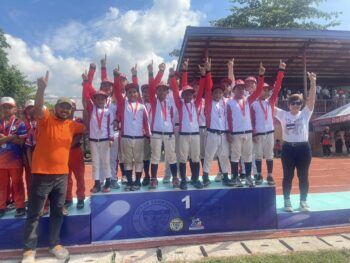QUEZON CITY (MindaNews/06 November) — The big surge in public interest over human rights in both mainstream and social media is indeed a great development. And we have the Duterte administration and the 119 lawmakers in Congress who voted to give the Commission on Human Rights (CHR) a budget of Php1,000 to thank for this.
But sadly, the human rights discourse has been highjacked by professional on-line trolls. Because of them the public discussion has been unfairly framed as simply a clash of personalities. Dilawan versus DDS. The Chairman versus the President. The CHR versus the Duterte administration. Human rights versus EJK.
Of course, this “us-vs-them” binary is but a manifestation of the Filipino penchant to hero-worship. Chairman Chito Gascon is now being portrayed by his supporters as the persecuted martyr whilst President Rodrigo Duterte is seen as the crusading warrior king by his rabid followers.
The irony here is that respecting the rights of our fellow human beings is really not about individual champions or antagonists. It is not about simply being anti-state or being pro-liberty. These labels do not capture the true philosophical underpinning of the human rights advocacy.
A human rights regime is fundamentally about preserving social harmony and community solidarity. Article 1 of the Universal Declaration of Human Rights states:
“All human beings are born free and equal in dignity and rights. They are endowed with reason and conscience and should act towards one another in a spirit of brotherhood.”
The phrase “in a spirit of brotherhood” is particularly telling. Ostensibly, the ultimate aim of recognizing human rights is to forge a strong sense of community. Therefore, we should not be painting heroes and villains in the human rights discourse. Instead, we should be working hard to embed respect for human rights in the heart of Filipino society.
The mandate of the CHR should be clear by now. Secretary Delfin Lorenzana of the Department of National Defense put it very succinctly: “For one it keeps government officials, especially the military and police, na ingat sila sa ginagawa nila (they have to be cautious with their actions), because anything that they will do ay liable sila sa (they will be liable for) human rights violation. For check and balance.”
Nevertheless, the vitriolic exchange between the CHR and the Duterte administration (including the 119 Congress members) has somehow given rise to a legitimate question about human rights. Should national human rights institutions or NHRIs such as the CHR also focus attention on violations committed by non-state actors?
What does the term “non-state entity” cover?
Non-state entities take on various forms: NGOs, both national and international; indigenous and minority groups; human rights defenders; terrorists; paramilitary groups; multinational enterprises; and, finally, individuals. Essentially, anyone who is NOT a state falls under this category.
However, the accountability of non-state entities in human rights law is still part of an on-going global scholarly discourse. Human rights experts have been discussing this for a long time but no definitive “ruling”, so to speak, has been arrived at yet.
To frame the discussion in a very simple way, at the heart of this matter is the tension between two views of human rights. On one side is the traditional view that human rights is the set of rules established to prevent abuses by the state. The implication here is only the state, through state institutions like the police and armed forces, can be held accountable for human rights violations. This is the prevailing understanding of human rights in the Philippines.
It must be added as well that fundamental rights are prescribed in the 1987 Constitution as state obligations. Hence, the CHR is constitutionally bound to ensure that government respect and protect the human rights of all Filipinos.
On the other end is the broader view that human rights also cover social and economic rights. This is the view that sustains the notion that non-state actors, such as corporations and terrorist organizations for example, can also be held accountable for human rights violations.
A simple illustration would be thus. The CHR can hold the Maute Group accountable for violating the human rights, particularly the right to education, of thousands of students in Marawi when they laid siege to the city. Underlying here is the treatment of the right to education as a human right which everyone, state and non-state, is duty-bound to respect. Hence, apart from the felonies for which the Maute Group would be liable, they can also be tagged as human rights violators, specifically the right to education.
I must warn though that this is just a very crude example. This matter of holding non-state actors liable for human rights violations is more complex. It demands nuanced scholarly analysis which obviously this column cannot adequately meet. As a starting point for those keen to pursue this hot topic further, I recommend the book Non-State Actors and Human Rights edited by Phillip Alston and published by Oxford University Press.
The House of Representatives, especially the infamous 119, is clear proof that Filipinos have still so much to learn about human rights. From what we have seen in social media in the past few months, an eagerness to be more aware and knowledgeable about human rights is now evident amongst Filipino youths. This is indeed a great development. (Michael Henry Ll. Yusingco, LLM is a legislative and policy consultant, law lecturer, a Non-Resident Research Fellow in the Ateneo School of Government, and author of the book, Rethinking the Bangsamoro Perspective. He is a regular contributor in various news and public affairs organizations in the Philippines and Australia.)







